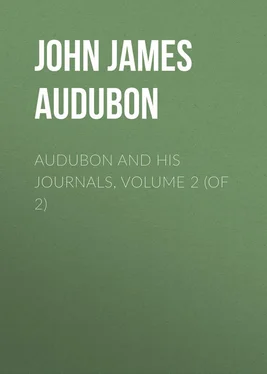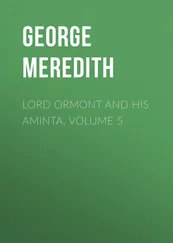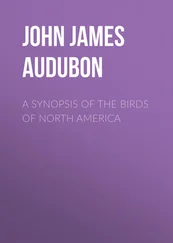John Audubon - Audubon and his Journals, Volume 2 (of 2)
Здесь есть возможность читать онлайн «John Audubon - Audubon and his Journals, Volume 2 (of 2)» — ознакомительный отрывок электронной книги совершенно бесплатно, а после прочтения отрывка купить полную версию. В некоторых случаях можно слушать аудио, скачать через торрент в формате fb2 и присутствует краткое содержание. Жанр: foreign_antique, foreign_prose, на английском языке. Описание произведения, (предисловие) а так же отзывы посетителей доступны на портале библиотеки ЛибКат.
- Название:Audubon and his Journals, Volume 2 (of 2)
- Автор:
- Жанр:
- Год:неизвестен
- ISBN:нет данных
- Рейтинг книги:5 / 5. Голосов: 1
-
Избранное:Добавить в избранное
- Отзывы:
-
Ваша оценка:
- 100
- 1
- 2
- 3
- 4
- 5
Audubon and his Journals, Volume 2 (of 2): краткое содержание, описание и аннотация
Предлагаем к чтению аннотацию, описание, краткое содержание или предисловие (зависит от того, что написал сам автор книги «Audubon and his Journals, Volume 2 (of 2)»). Если вы не нашли необходимую информацию о книге — напишите в комментариях, мы постараемся отыскать её.
Audubon and his Journals, Volume 2 (of 2) — читать онлайн ознакомительный отрывок
Ниже представлен текст книги, разбитый по страницам. Система сохранения места последней прочитанной страницы, позволяет с удобством читать онлайн бесплатно книгу «Audubon and his Journals, Volume 2 (of 2)», без необходимости каждый раз заново искать на чём Вы остановились. Поставьте закладку, и сможете в любой момент перейти на страницу, на которой закончили чтение.
Интервал:
Закладка:
June 20, Tuesday. It rained nearly all night; and though the ball was given, I saw nothing of it, and heard but little, for I went to bed and to sleep. Sprague finished the drawing of the old male Antelope, and I mine, taking besides the measurements, etc., which I give here… Bell has skinned the head and put it in pickle. The weather was bad, yet old Provost, Alexis, and Mr. Bonaventure, a good hunter and a first-rate shot, went over the river to hunt. They returned, however, without anything, though they saw three or four Deer, and a Wolf almost black, with very long hair, which Provost followed for more than a mile, but uselessly, as the rascal outwitted him after all. Harris and Bell are gone too, and I hope they will bring some more specimens of Sprague's Lark and the new Golden-winged Woodpecker.
To fill the time on this dreary day, I asked Mr. Chardon to come up to our room and give us an account of the small-pox among the Indians, especially among the Mandans and Riccarees, and he related as follows: Early in the month of July, 1837, the steamer "Assiniboin" arrived at Fort Clark with many cases of small-pox on board. Mr. Chardon, having a young son on the boat, went thirty miles to meet her, and took his son away. The pestilence, however, had many victims on the steamboat, and seemed destined to find many more among the helpless tribes of the wilderness. An Indian stole the blanket of one of the steamboat's watchmen (who lay at the point of death, if not already dead), wrapped himself in it, and carried it off, unaware of the disease that was to cost him his life, and that of many of his tribe – thousands, indeed. Mr. Chardon offered a reward immediately for the return of the blanket, as well as a new one in its stead, and promised that no punishment should be inflicted. But the robber was a great chief; through shame, or some other motive, he never came forward, and, before many days, was a corpse. Most of the Riccarees and Mandans were some eighty miles in the prairies, hunting Buffaloes and saving meat for the winter. Mr. Chardon despatched an express to acquaint them all of the awful calamity, enjoining them to keep far off, for that death would await them in their villages. They sent word in return, that their corn was suffering for want of work, that they were not afraid, and would return; the danger to them, poor things, seemed fabulous, and doubtless they thought other reasons existed, for which this was an excuse. Mr. Chardon sent the man back again, and told them their crop of corn was nothing compared to their lives; but Indians are Indians, and, in spite of all entreaties, they moved en masse , to confront the awful catastrophe that was about to follow. When they reached the villages, they thought the whites had saved the Riccarees, and put the plague on them alone (they were Mandans). Moreover, they thought, and said, that the whites had a preventive medicine, which the whites would not give them. Again and again it was explained to them that this was not the case, but all to no purpose; the small-pox had taken such a hold upon the poor Indians, and in such malignant form, that they died oftentimes within the rising and setting of a day's sun. They died by hundreds daily; their bodies were thrown down beneath the high bluff, and soon produced a stench beyond description. Men shot their wives and children, and afterwards, driving several balls in their guns, would place the muzzle in their mouths, and, touching the trigger with their feet, blow their brains out. About this time Mr. Chardon was informed that one of the young Mandan chiefs was bent on shooting him, believing he had brought the pestilence upon the Indians. One of Mr. Chardon's clerks heard of this plot, and begged him to remain in the store; at first Mr. Chardon did not place any faith in the tale, but later was compelled to do so, and followed his clerk's advice. The young chief, a short time afterwards, fell a victim to this fearful malady; but probably others would have taken his life had it not been for one of those strange incidents which come, we know not why, nor can we explain them. A number of the chiefs came that day to confer with Mr. Chardon, and while they were talking angrily with him, he sitting with his arms on a table between them, a Dove, being pursued by a Hawk, flew in through the open door, and sat panting and worn out on Mr. Chardon's arm for more than a minute, when it flew off. The Indians, who were quite numerous, clustered about him, and asked him what the bird came to him for? After a moment's thought, he told them that the bird had been sent by the white men, his friends, to see if it was true that the Mandans had killed him, and that it must return with the answer as soon as possible; he added he had told the Dove to say that the Mandans were his friends, and would never kill him, but would do all they could for him. The superstitious redmen believed this story implicitly; thenceforth they looked on Mr. Chardon as one of the Great Spirit's sons, and believed he alone could help them. Little, however, could be done; the small-pox continued its fearful ravages, and the Indians grew fewer and fewer day by day. For a long time the Riccarees did not suffer; the Mandans became more and more astounded at this, and became exasperated against both whites and Indians. The disease was of the most virulent type, so that within a few hours after death the bodies were a mass of rottenness. Men killed themselves, to die a nobler death than that brought by the dreaded plague. One young warrior sent his wife to dig his grave; and she went, of course, for no Indian woman dares disobey her lord. The grave was dug, and the warrior, dressed in his most superb apparel, with lance and shield in hand, walked towards it singing his own death song, and, finding the grave finished, threw down all his garments and arms, and leaped into it, drawing his knife as he did so, and cutting his body almost asunder. This done, the earth was thrown over him, the grave filled up, and the woman returned to her lodge to live with her children, perhaps only another day. A great chief, who had been a constant friend to the whites, having caught the pest, and being almost at the last extremity, dressed himself in his fineries, mounted his war-steed, and, fevered and in agony, rode among the villages, speaking against the whites, urging the young warriors to charge upon them and destroy them all. The harangue over, he went home, and died not many hours afterward. The exposure and exertion brought on great pains, and one of the men from the fort went to him with something that gave him temporary relief; before he died, he acknowledged his error in trying to create trouble between the whites and Indians, and it was his wish to be buried in front of the gate of the fort, with all his trophies around and above his body; the promise was given him that this should be done, and he died in the belief that the white man, as he trod on his grave, would see that he was humbled before him, and would forgive him. Two young men, just sickening with the disease, began to talk of the dreadful death that awaited them, and resolved not to wait for the natural close of the malady, the effects of which they had seen among their friends and relatives. One said the knife was the surest and swiftest weapon to carry into effect their proposed self-destruction; the other contended that placing an arrow in the throat and forcing it into the lungs was preferable. After a long debate they calmly rose, and each adopted his own method; in an instant the knife was driven into the heart of one, the arrow into the throat of the other, and they fell dead almost at the same instant. Another story was of an extremely handsome and powerful Indian who lost an only son, a beautiful boy, upon whom all his hopes and affections were placed. The loss proved too much for him; he called his wife, and, after telling her what a faithful husband he had been, said to her, "Why should we live? all we cared for is taken from us, and why not at once join our child in the land of the Great Spirit?" She consented; in an instant he shot her dead on the spot, reloaded his gun, put the muzzle in his mouth, touched the trigger, and fell back dead. On the same day another curious incident occurred; a young man, covered with the eruption, and apparently on the eve of death, managed to get to a deep puddle of mire or mud, threw himself in it, and rolled over and over as a Buffalo is wont to do. The sun was scorching hot, and the poor fellow got out of the mire covered with a coating of clay fully half an inch thick and laid himself down; the sun's heat soon dried the clay, so as to render it like unburnt bricks, and as he walked or crawled along towards the village, the mud drying and falling from him, taking the skin with it, and leaving the flesh raw and bleeding, he was in agony, and besought those who passed to kill him; but, strange to say, after enduring tortures, the fever left him, he recovered, and is still living, though badly scarred. Many ran to the river, in the delirium of the burning fever, plunged in the stream, and rose no more. The whites in the fort, as well as the Riccarees, took the disease after all. The Indians, with few exceptions, died, and three of the whites. The latter had no food in the way of bread, flour, sugar, or coffee, and they had to go stealthily by night to steal small pumpkins, about the size of a man's fist, to subsist upon – and this amid a large number of wild, raving, mad Indians, who swore revenge against them all the while. This is a mere sketch of the terrible scourge which virtually annihilated two powerful tribes of Indians, and of the trials of the traders attached to the Fur Companies on these wild prairies, and I can tell you of many more equally strange. The mortality, as taken down by Major Mitchell, was estimated by that gentleman at 150,000 Indians, including those from the tribes of the Riccarees, Mandans, Sioux, and Blackfeet. The small-pox was in the very fort from which I am now writing this account, and its ravages here were as awful as elsewhere. Mr. Chardon had the disease, and was left for dead; but one of his clerks saw signs of life, and forced him to drink a quantity of hot whiskey mixed with water and nutmeg; he fell into a sound sleep, and his recovery began from that hour. He says that with him the pains began in the small of the back, and on the back part of his head, and were intense. He concluded by assuring us all that the small-pox had never been known in the civilized world, as it had been among the poor Mandans and other Indians. Only twenty-seven Mandans were left to tell the tale; they have now augmented to ten or twelve lodges in the six years that have nearly elapsed since the pestilence. 24
Читать дальшеИнтервал:
Закладка:
Похожие книги на «Audubon and his Journals, Volume 2 (of 2)»
Представляем Вашему вниманию похожие книги на «Audubon and his Journals, Volume 2 (of 2)» списком для выбора. Мы отобрали схожую по названию и смыслу литературу в надежде предоставить читателям больше вариантов отыскать новые, интересные, ещё непрочитанные произведения.
Обсуждение, отзывы о книге «Audubon and his Journals, Volume 2 (of 2)» и просто собственные мнения читателей. Оставьте ваши комментарии, напишите, что Вы думаете о произведении, его смысле или главных героях. Укажите что конкретно понравилось, а что нет, и почему Вы так считаете.












